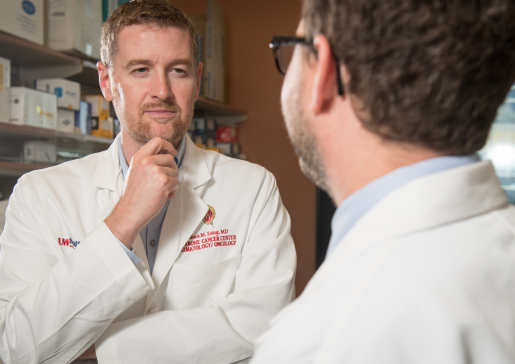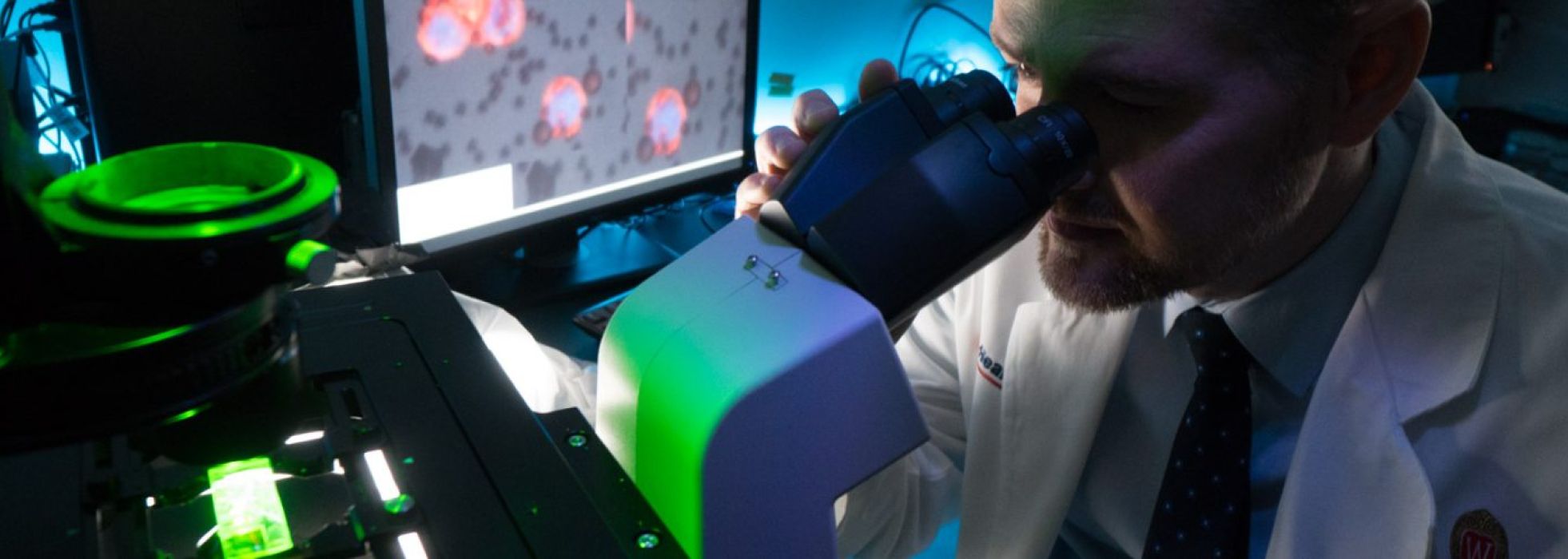Translational Biomarker Therapeutics for Prostate Cancer
Joshua Lang, MD, MS, is a physician-scientist with a broad background in molecular biology, medical oncology, and translational research.
Using microfluidics, Dr. Lang is focused on studying the emergence of resistance to therapy in patients with advanced prostate cancer and identifying new biomarkers for targeted therapies.

Research Overview
The Lang Lab focuses on treatment resistance in solid tumors through development using multi-cellular models and liquid biopsies from patients with advanced cancers.
